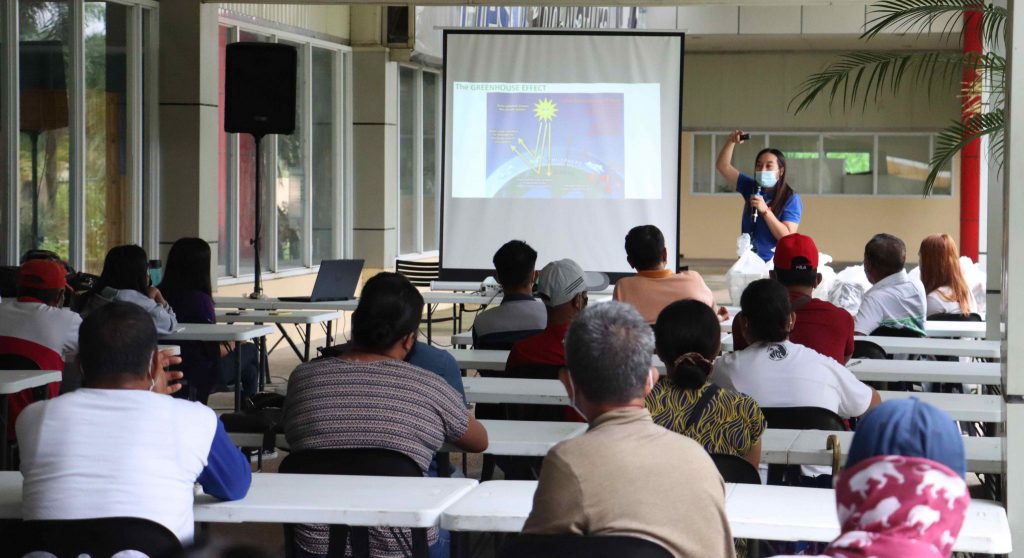The Department of Agriculture -Philippine Carabao Center (PCC), through its Socio-Economics and Policy Section (SEPS), conducted a lecture-discussion to strengthen the adaptive capacity of carapreneurs on climate change.
The activity was part of an awareness campaign to enhance livestock cooperatives’ adaptation and mitigation strategies on the effects of climate change to their livelihood. It also highlighted the contribution of livestock industry to greenhouse gases and how to lessen its harmful effect on the environment. Studies show that 9.7% of unmanaged carabao manure contributes to greenhouse gases around the globe.
Gerardo F. Delos Santos, chairman of the Nueva Ecija Federation of Dairy Carabao Cooperatives (NEFEDCCO), shared that climate change had impacted their livelihood as carabao raisers.
“Masyadong nakakaapekto ang climate change sa kabuhayan ng mga tao. May mga ‘di inaasahang pagbaha at kalamidad. Nakakaapekto rin ito sa bukid kagaya ng pagdudulot nito ng sakit sa mga palay at mais. Nakakaapekto sa mga pagkain ng hayop, ‘yong mga damo parang ‘di na gaanong tumutubo. Dahilan din ang climate change sa pagkakasakit ng mga alaga naming hayop (Climate change has impacted our livelihood. From unexpected floods and disasters to causing diseases to our crops such as rice and corn. It also affects the growth of forages for our carabaos and causes illness to our livestock),” said Delos Santos.
Estella P. Valiente, OIC of SEPS, served as the resource speaker during the lecture-discussion. She explained that as the temperature rises, it affects the performance of carabaos in milk production. The shelf life of processed milk will also be shorter.
“Tumataas din ang gastusin nila sa tubig. Sa ngayong malamig-lamig, once or twice ang paligo nila sa kalabaw. Pero pag tag-init, 3 to 5 times nila pinapaliguan to keep them cool (Their water consumption has also increased. Now that the weather is cold they bathe their carabaos once or twice. But during the summer, they need to bathe them 3 to 5 times to keep them cool),” added Valiente.
Valiente then urged the carapreneurs to use innovative materials in making climate-smart housing such as the installation of sprinklers, mists, and electric fan to cool off their livestock.
She reminded participants to utilize organic and eco-friendly ways to manage carabao manure such as vermicomposting. Valiente also encouraged to plant trees as a way to mitigate the effects of climate change as trees absorb carbon dioxide and produce oxygen and help cool the environment.
The lecture-discussion ended with an open forum and an interactive sharing of carapreneurs on their own effective ways of managing carabao manures. Approximately 50 participants from different dairy cooperatives from Nueva Ecija attended the activity.
Dr. Ronnie D. Domingo, DA-PCC OIC-Executive Director, was also present during the activity.

